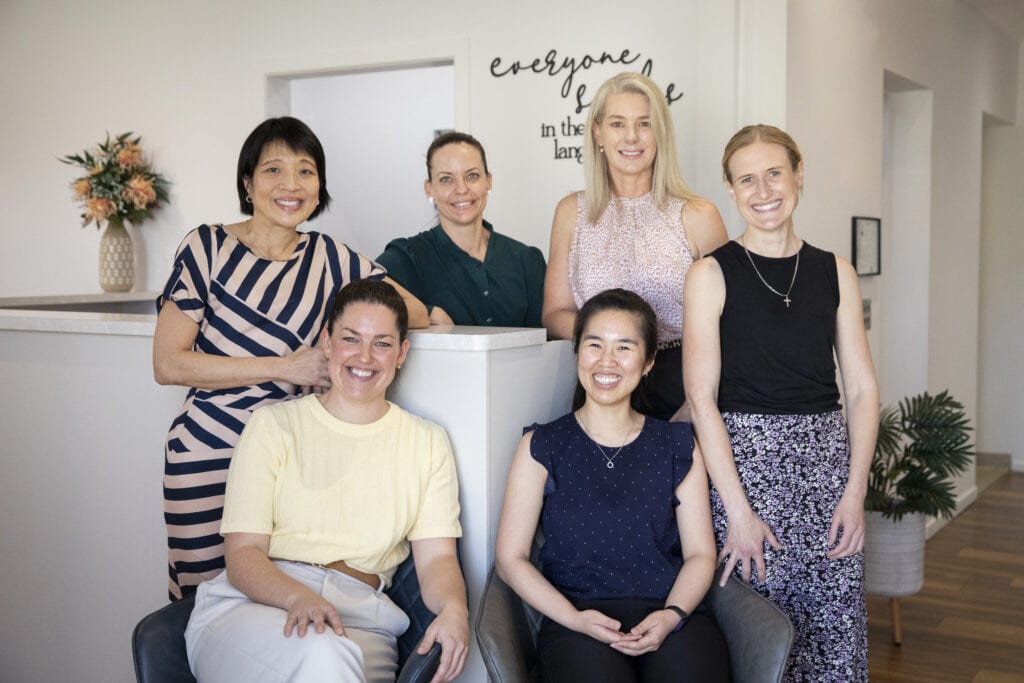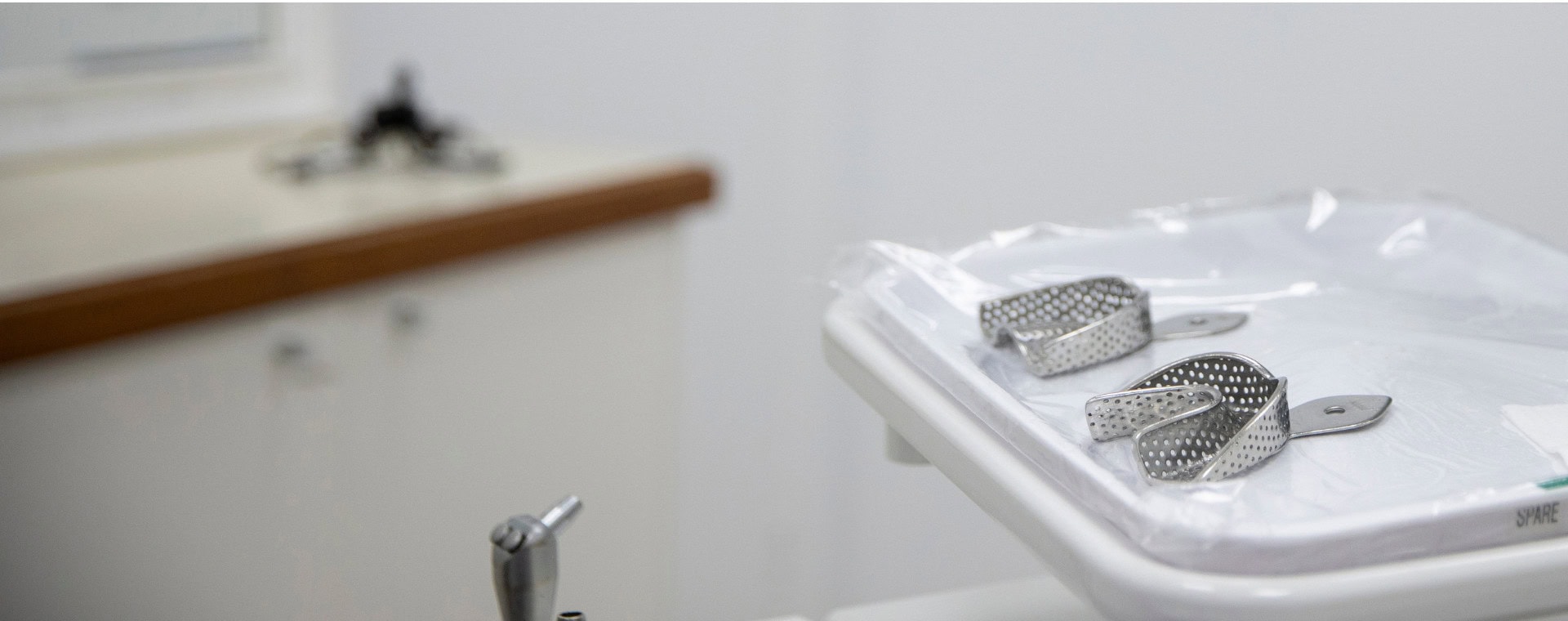Teeth whitening
Tooth whitening, or bleaching, can be a cost-effective way to lighten the teeth. This treatment can be offered as a standalone service or as part of a more comprehensive cosmetic dental treatment plan.
Teeth become stained in two ways:
- Stains, usually from diet or tobacco, can sit on the surface of teeth.
- The enamel itself can become stained (this is called ‘intrinsic staining’).
Sometimes, teeth will look much brighter after a professional cleaning, as this procedure removes surface stains.
If intrinsic stains are present, professional teeth whitening can make teeth brighter.
Two types of whitening are available at Richmond Road Dental:
- Dentist-supervised, take-home whitening kits.
- In-chair teeth whitening.
Each procedure has its benefits and drawbacks. Our dentists explain these in detail to ensure each patient can choose the treatment option that will work best for them.
Dentist-supervised, take-home whitening kits
Take-home whitening kits enable whitening to occur over a period of two weeks in the comfort of your own home.
First, we make custom trays that fit precisely over the teeth. The trays allow the whitening agent (bleach) to remain in contact with the tooth enamel without risk of injury to the surrounding gums.
The trays can be worn for 90 minutes each day. The full course of treatment usually takes 10-14 days. Various concentrations of whitening agents are available, and our dentists prescribe these based on each patient’s needs.
In-chair teeth whitening
In-chair teeth whitening offers fast whitening results in a single appointment in our rooms.
During a whitening appointment, our dentists apply strong whitening agents to the teeth. The whitening agent is left in place for several minutes and then wiped away. This process is repeated three or four times during the appointment.
The whitening agents used in this appointment are much stronger than the bleach in the whitening kits and can damage the soft tissues of the mouth. Our dentists cover the gums, lips, and cheeks with barriers and carefully control the placement of the bleach, protecting the soft tissues from chemical burns.
Important to know
- Not all teeth respond to whitening treatment.
- Some patients may experience increased tooth sensitivity in the days and weeks following whitening treatment. If sensitivity persists, our dentists can provide treatments to reduce discomfort.
- Whitened teeth can become dull again, especially if the patient smokes, drinks coffee, or eats highly pigmented foods. However, the brightness of whitened teeth can be protected with thorough daily brushing and flossing and using a good-quality whitening toothpaste.
- Your dentist can also help you to safely revitalise the brightness of your teeth if they become dull again.
- Whitening toothpastes contain polishing particles that help keep surface stains away. They may include a whitening agent, but this will be present in very low concentrations. Because toothpaste is only in contact with teeth for a few minutes each day, the whitening agent is unlikely to make much of a difference to intrinsic stains but may bleach superficial stains over time.
- This page contains general information about teeth whitening. It cannot replace individualised advice from your dental practitioner. Please consult your dentist for specific recommendations about your oral health and necessary treatments.
Teeth whitening by Richmond Road Dental
For quality dental treatment, please contact our friendly reception team to make an appointment with one of our gentle dentists.

Resources about teeth whitening
Learn more about teeth whitening.
- Three ways whitening toothpastes work (Opens in a new tab) – From the Australian Dental Association website
Downloadable information sheets about teeth whitening
Download these helpful information sheets
- Teeth whitening – A fact sheet by the Australian Dental Association
- Tooth whitening (PDF, 573 KB) – An information sheet by Richmond Road Dental


